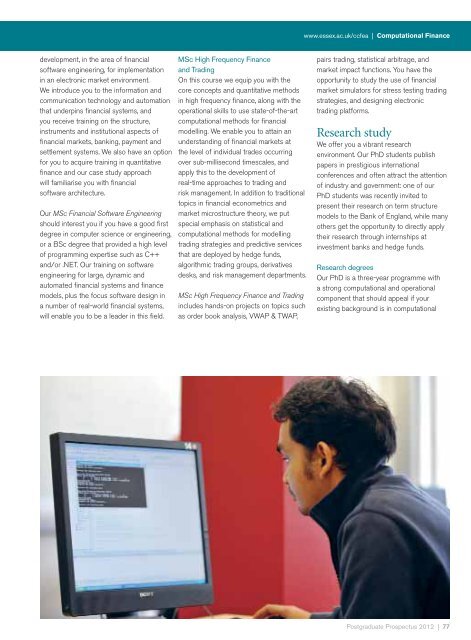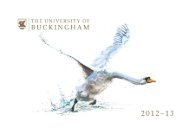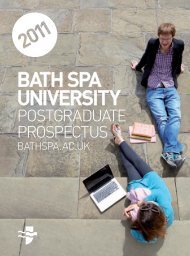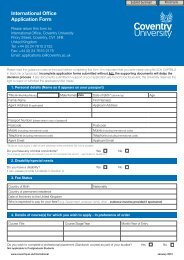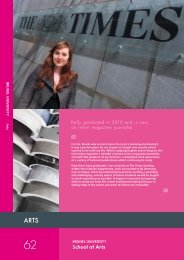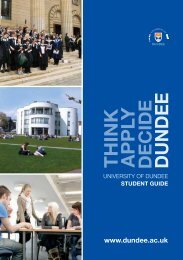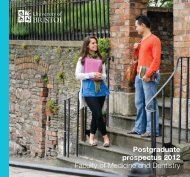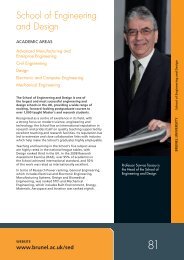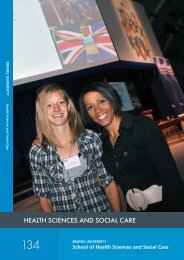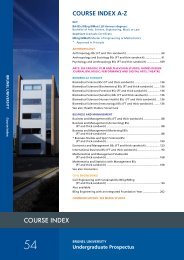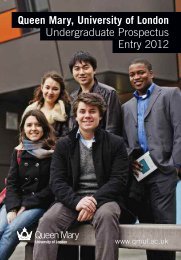Postgraduate Prospectus
Postgraduate Prospectus
Postgraduate Prospectus
Create successful ePaper yourself
Turn your PDF publications into a flip-book with our unique Google optimized e-Paper software.
www.essex.ac.uk/ccfea | Computational Finance<br />
development, in the area of financial<br />
software engineering, for implementation<br />
in an electronic market environment.<br />
We introduce you to the information and<br />
communication technology and automation<br />
that underpins financial systems, and<br />
you receive training on the structure,<br />
instruments and institutional aspects of<br />
financial markets, banking, payment and<br />
settlement systems. We also have an option<br />
for you to acquire training in quantitative<br />
finance and our case study approach<br />
will familiarise you with financial<br />
software architecture.<br />
Our MSc Financial Software Engineering<br />
should interest you if you have a good first<br />
degree in computer science or engineering,<br />
or a BSc degree that provided a high level<br />
of programming expertise such as C++<br />
and/or .NET. Our training on software<br />
engineering for large, dynamic and<br />
automated financial systems and finance<br />
models, plus the focus software design in<br />
a number of real-world financial systems,<br />
will enable you to be a leader in this field.<br />
MSc High Frequency Finance<br />
and Trading<br />
On this course we equip you with the<br />
core concepts and quantitative methods<br />
in high frequency finance, along with the<br />
operational skills to use state-of-the-art<br />
computational methods for financial<br />
modelling. We enable you to attain an<br />
understanding of financial markets at<br />
the level of individual trades occurring<br />
over sub-millisecond timescales, and<br />
apply this to the development of<br />
real-time approaches to trading and<br />
risk management. In addition to traditional<br />
topics in financial econometrics and<br />
market microstructure theory, we put<br />
special emphasis on statistical and<br />
computational methods for modelling<br />
trading strategies and predictive services<br />
that are deployed by hedge funds,<br />
algorithmic trading groups, derivatives<br />
desks, and risk management departments.<br />
MSc High Frequency Finance and Trading<br />
includes hands-on projects on topics such<br />
as order book analysis, VWAP & TWAP,<br />
pairs trading, statistical arbitrage, and<br />
market impact functions. You have the<br />
opportunity to study the use of financial<br />
market simulators for stress testing trading<br />
strategies, and designing electronic<br />
trading platforms.<br />
Research study<br />
We offer you a vibrant research<br />
environment. Our PhD students publish<br />
papers in prestigious international<br />
conferences and often attract the attention<br />
of industry and government: one of our<br />
PhD students was recently invited to<br />
present their research on term structure<br />
models to the Bank of England, while many<br />
others get the opportunity to directly apply<br />
their research through internships at<br />
investment banks and hedge funds.<br />
Research degrees<br />
Our PhD is a three-year programme with<br />
a strong computational and operational<br />
component that should appeal if your<br />
existing background is in computational<br />
<strong>Postgraduate</strong> <strong>Prospectus</strong> 2012 | 77


